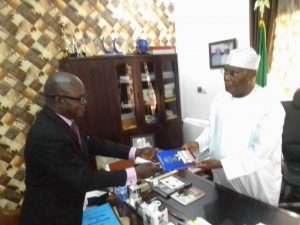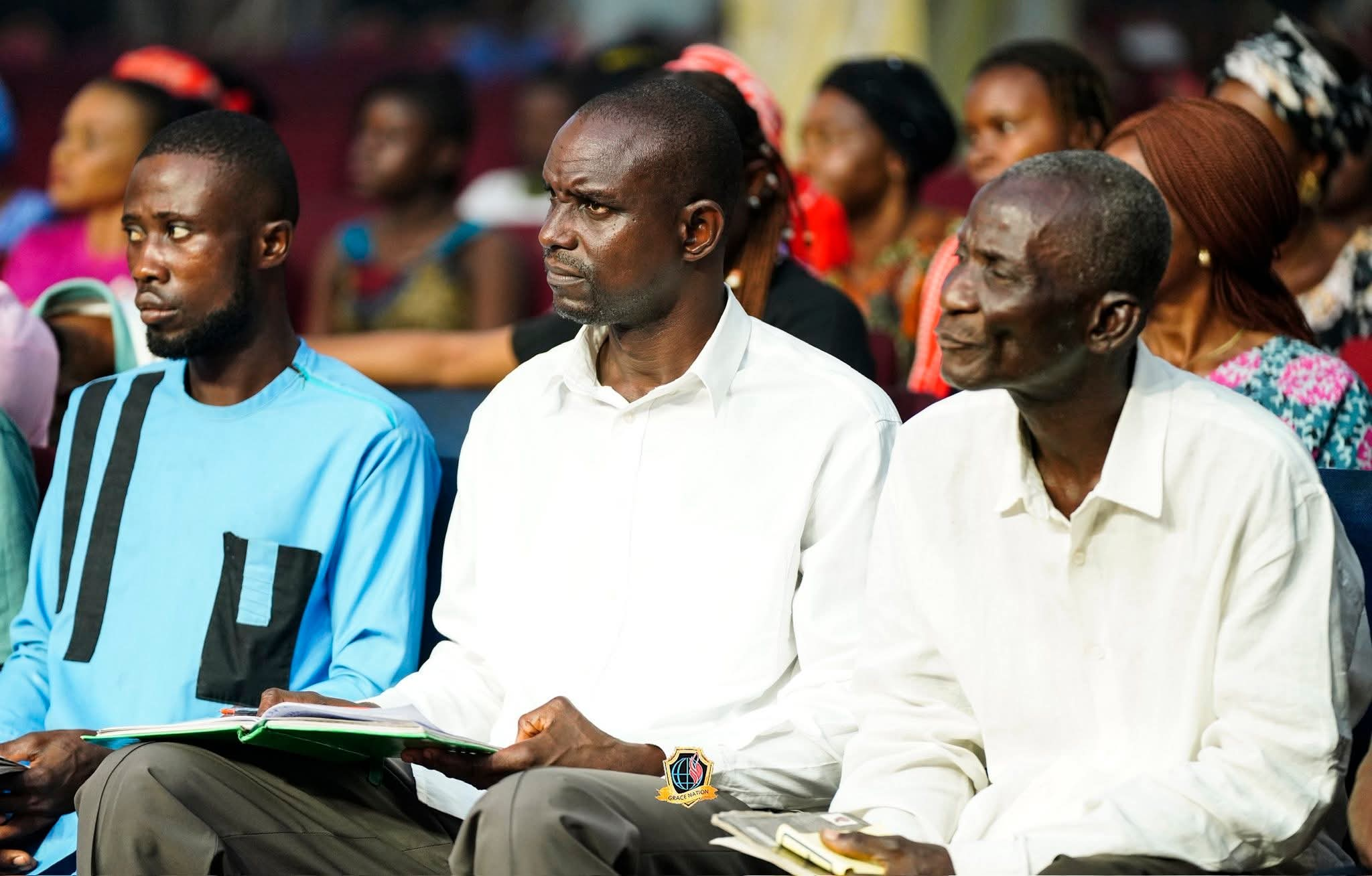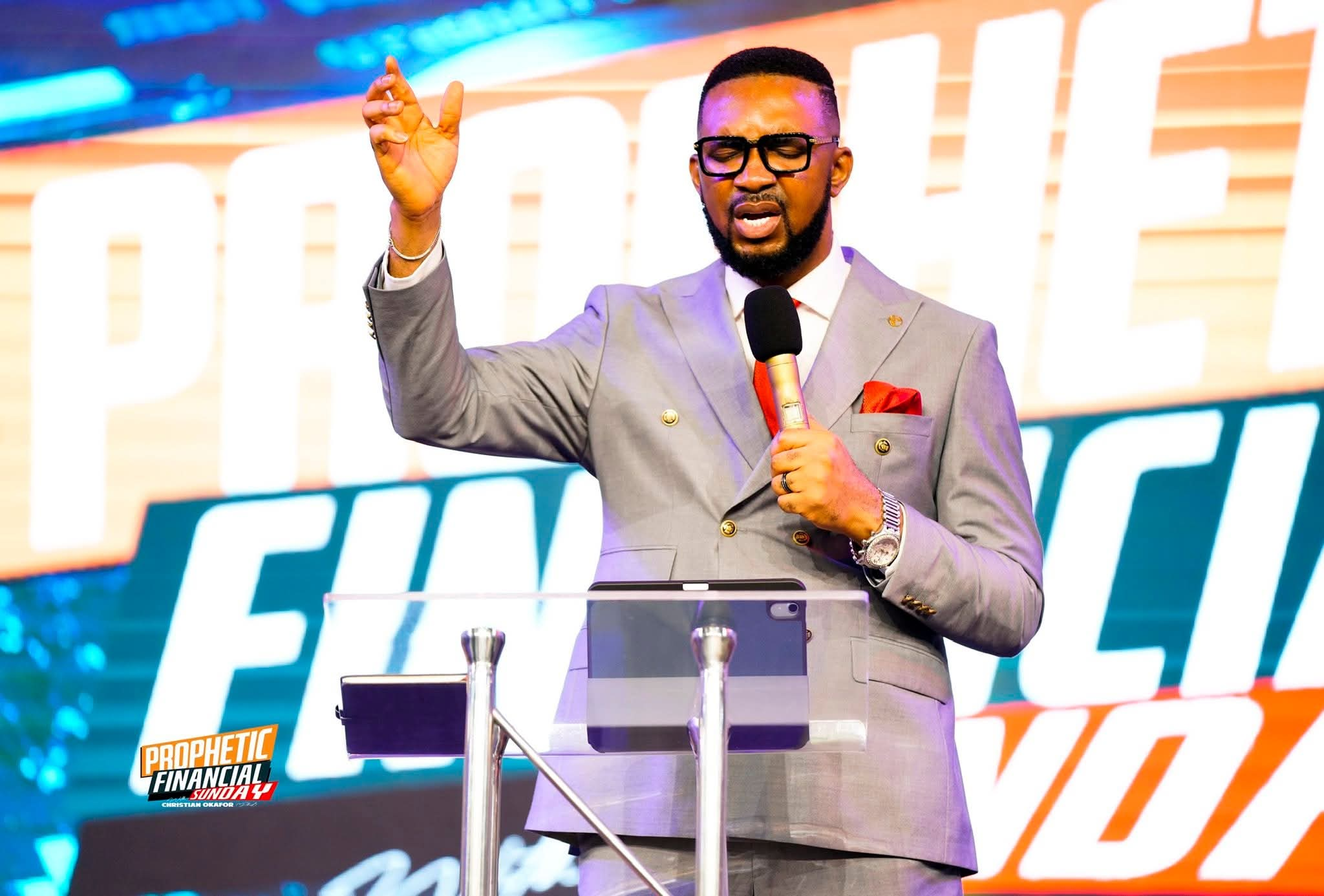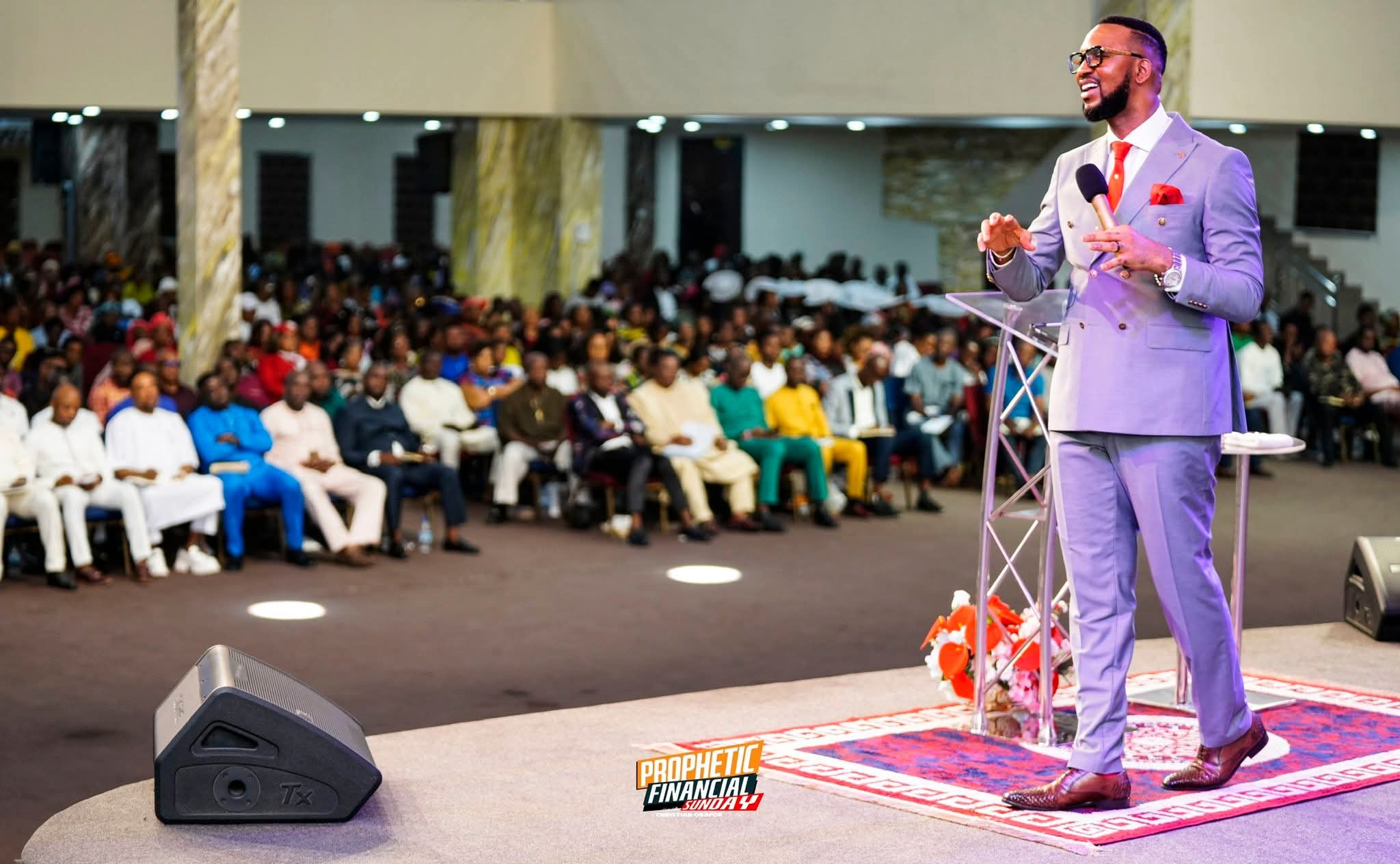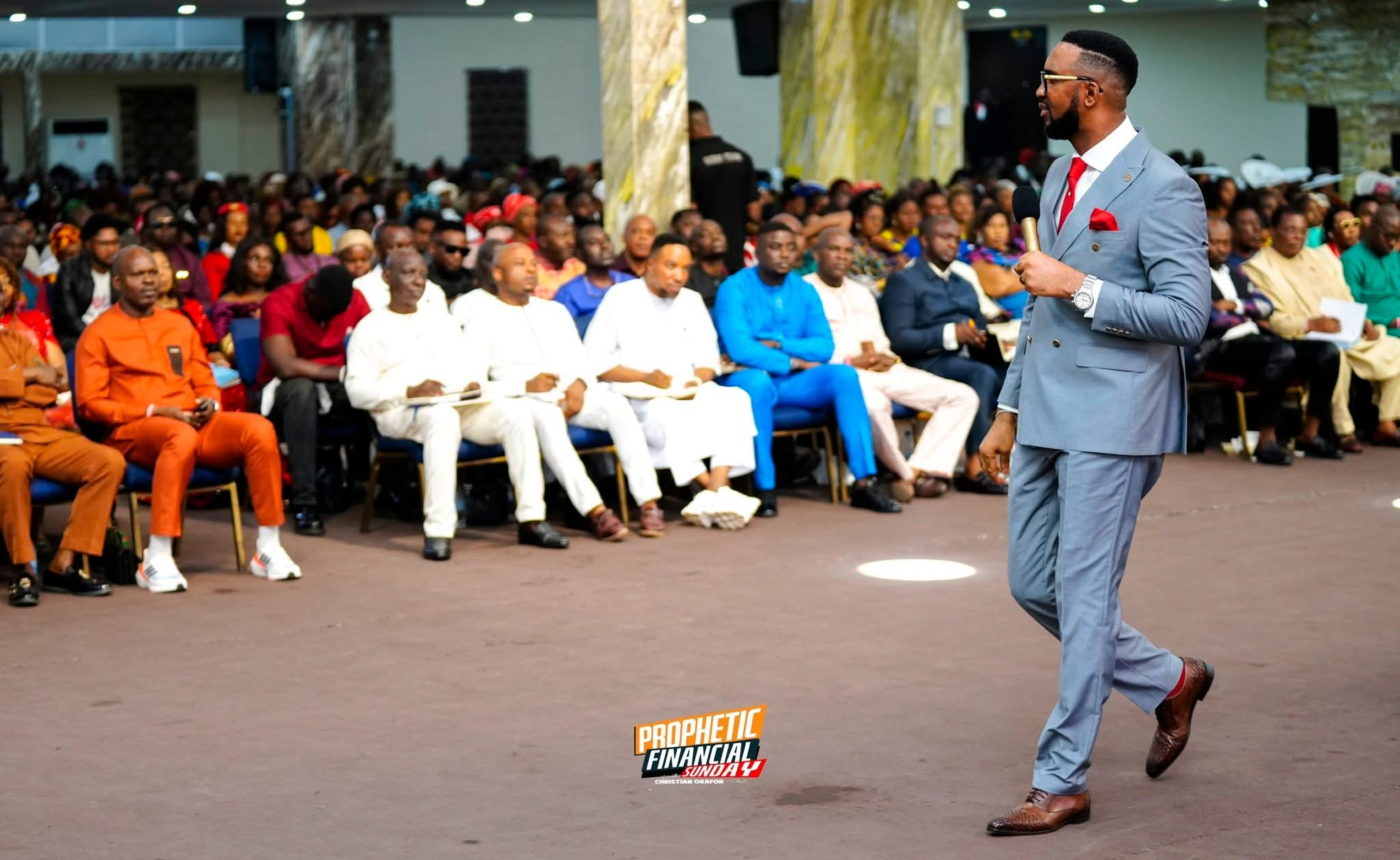celebrity radar - gossips
GARLANDS FOR ATIKU@77, A ROSE IN THE MIDST OF THORNS by Dare ADELEKAN
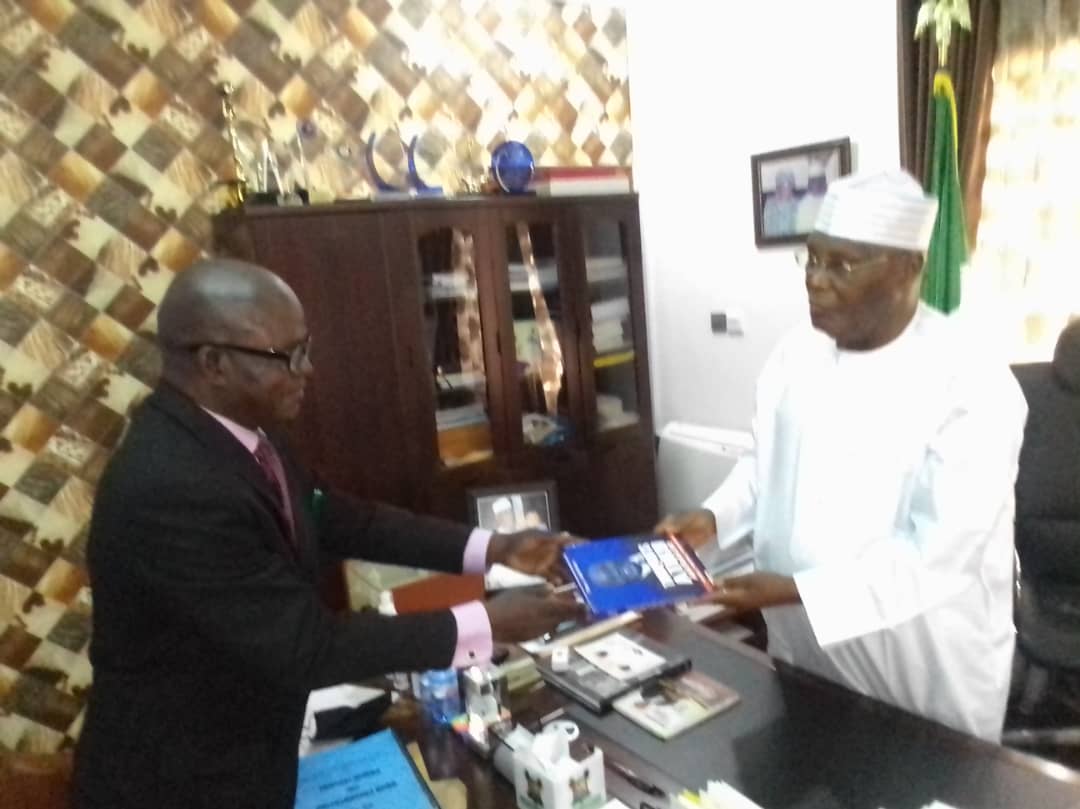
GARLANDS FOR ATIKU@77, A ROSE IN THE MIDST OF THORNS by Dare ADELEKAN
“In the grand tapestry of life, the story of Atiku Abubakar the little boy from Jada unfolds as a compelling narrative, a saga marked by resilience, trials, and triumphs. As we celebrate this momentous occasion, it is not merely the passing of another year but a profound acknowledgment of a life well-lived—a life akin to a rose gracefully blooming in the midst of thorns.
Atiku Abubakar was born on November 25, 1946, in Jada, a town in present-day Adamawa State, Nigeria. His early life was shaped by a mix of traditional and Islamic influences. Here are key aspects of his early life and influences:
• Education: Atiku’s early education included attending Jada Primary School and Adamawa Provincial Secondary School in Yola. He later pursued further studies at the Nigerian Police College in Ikeja,Lagos and the Customs Training School in Ebute Meta ,Lagos.He also completed Diploma in Law Programme at the Ahmadu Bello University ABU,Zaria in 1969.
• Islamic Background: Atiku comes from a Muslim background, and his early life was influenced by Islamic teachings and traditions. This background has often been evident in his public life, and he has been known for his active involvement in Islamic activities.
• Business Ventures: Atiku Abubakar ventured into business early in his life. He started out in the trading sector and gradually expanded into various businesses, including real estate and the oil and gas industry. His success in business played a significant role in shaping his later political career.
• Entry into Politics: Atiku’s foray into politics began in the 1980s when he joined the People’s Front of Nigeria. He later became involved in the Social Democratic Party (SDP) and played a role in the transition to democracy in the 1990s. And till today, he is still in active politics despite all odds and promised to continue to work towards the enhancement of democratic process in Nigeria. Atiku said ,For as long as I breathe I will continue to struggle, with other Nigerians, to deepen our democracy and rule of law and for the kind of political and economic restructuring the country needs to reach its true potential. That struggle should now be led by the younger generation of Nigerians who have even more at stake than my generation.
• Influence of Political Mentors: Atiku Abubakar’s political journey was influenced by several mentors, including Shehu Musa Yar’Adua, a prominent Nigerian military officer and politician. Yar’Adua’s mentorship played a crucial role in shaping Atiku’s political ideology and approach.
• Leadership Roles in Customs: Atiku had a successful career in the Nigerian Customs Service, where he rose through the ranks to become the Deputy Director. This experience provided him with a solid foundation in public service and administration.
Understanding Atiku Abubakar’s early life and influences is essential for gaining insights into the factors that shaped his character, values, and eventual entry into the complex world of Nigerian politics. To be able to swim in the Nigerian political deep sea, you must have a very strong swimming suit like that of Atiku. You must be a case study in leadership like Atiku. He has consistently shown a commitment to democratic principles. He has been actively engaged in Nigerian politics and has promoted democratic ideals, including the importance of free and fair elections, political pluralism, and the rule of law.
His foray into the political arena serves as a testament to his enduring commitment to public service. From the early days of his political career to the present, Atiku has weathered storms and embraced challenges with a fortitude reminiscent of a rose standing tall amidst adversity. Each petal of his political journey tells a story of dedication, ambition, and an unyielding spirit to contribute to the welfare of his nation.
• POLICY ADVOCACY
• Restructuring: • Atiku has been a vocal advocate for the restructuring of Nigeria. He emphasizes the need to address issues of federalism, devolution of powers, and regional autonomy to achieve a more balanced and effective governance structure.
• Youth Empowerment: • Atiku has expressed a commitment to empowering the youth. His policy advocacy includes initiatives aimed at providing opportunities for young people, both in terms of education and employment.
• Economic Reforms: • Atiku has advocated for economic reforms, including policies to stimulate economic growth, attract foreign investment, and create a conducive business environment. His business background often influences his economic policy positions.
• Education: • Atiku has highlighted the importance of education and has advocated for policies that enhance the quality of education in Nigeria. This includes initiatives to improve infrastructure, access, and curriculum development.
• Job Creation: • Job creation is a recurring theme in Atiku’s policy advocacy. He has put forward ideas and proposals aimed at addressing unemployment and fostering economic opportunities.
• Healthcare: • Atiku has expressed concerns about the state of healthcare in Nigeria. His policy advocacy includes proposals for improving healthcare infrastructure, access to medical services, and addressing public health challenges.
• Technology and Innovation: • Atiku has shown interest in promoting technology and innovation. His policy advocacy includes initiatives to harness technology for economic development, job creation, and improving governance.
Trials and tribulations have not been strangers on Atiku’s path. Through the twists and turns, he has faced controversies with a grace befitting the delicate beauty of a rose, undeterred by the thorns that sought to impede his progress. His resilience, like the bloom of a rose after a storm, has been a source of inspiration for many who have witnessed his unwavering pursuit of his ideals.
Controversies and Challenges
The disputes between Olusegun Obasanjo and Atiku Abubakar during their tenure as President and Vice President of Nigeria (1999-2007) were multifaceted and stemmed from various issues. Here are some key factors that contributed to their strained relationship:
• Power Struggle: • There was a perceived power struggle between Obasanjo and Atiku. While the president sought to consolidate power, Atiku aimed to maintain influence and authority, leading to tensions over decision-making processes.
• Allegations of Corruption: Atiku Abubakar faced allegations of corruption during his time as Vice President. These accusations, which included issues related to financial dealings, contributed to the deterioration of trust between the two leaders.
• Political Differences: Both leaders had differing political aspirations and affiliations. Atiku sought the presidential candidacy, and this divergence in political interests added to the overall discord.
• Attempts to Block Atiku’s Ambitions: Obasanjo made efforts to thwart Atiku’s political ambitions, including attempts to prevent him from running for the presidency. This further strained their relationship and created a contentious political environment.
• Third Term Agenda: There were allegations that Obasanjo was considering a third term in office, a move Atiku opposed. The controversy surrounding the potential extension of Obasanjo’s presidency exacerbated the already tense relationship.
These factors combined to create a complex and adversarial relationship between President Obasanjo and Vice President Atiku during their time in office. The disputes eventually led to Atiku’s exit from the ruling party, the People’s Democratic Party (PDP), and his subsequent political journey with other political parties.
Management of crises and tribulations
Atiku Abubakar’s approach to managing crises and tribulations in his political life is marked by a combination of resilience, strategic maneuvering, and legal recourse.
• Legal Recourse: Following the announcement of the 2019 and 2023 presidential election results, Atiku Abubakar contested the outcome, alleging irregularities and challenging the victory of the incumbent president. His decision to take the matter to court showcased a commitment to utilizing legal avenues as a means of addressing perceived injustices, demonstrating a strategic approach to crisis resolution.
• Engagement with Democratic Processes: Atiku’s choice to contest the election outcome through legal channels instead of resorting to public unrest or protests reflects a commitment to democratic processes. This approach is crucial for maintaining stability and upholding the rule of law in the face of political challenges.
• Public Communication: Throughout the legal proceedings, Atiku maintained a presence in the public sphere, using media platforms to articulate his position and communicate with his supporters. This proactive communication strategy aimed to manage public perceptions and garner support while the legal process unfolded.
• Advocacy for Electoral Reforms: Beyond his personal case, Atiku Abubakar has been an advocate for electoral reforms in Nigeria. This broader engagement reflects a commitment to addressing systemic issues to prevent future crises, showcasing a long-term vision for improved democratic processes.
Atiku Abubakar’s philosophic vision and political thoughts, as demonstrated in his leadership, provide a valuable case study in leadership.
• Economic Development: As a leader, Atiku Abubakar has emphasized the significance of economic development and job creation. He has advocated for policies that encourage investment, entrepreneurship, and economic growth to improve the well-being of Nigerians.
• Federalism and Restructuring: Atiku has been a vocal advocate for fiscal federalism and restructuring in Nigeria. He has argued for greater devolution of powers to states and local governments, promoting a more decentralized system of governance.
• Youth Empowerment: Atiku recognizes the importance of youth engagement and empowerment. He has advocated for policies and programs that address youth unemployment and provide opportunities for young people to contribute to the nation’s progress.
• International Engagement: Throughout his political career, Atiku Abubakar has engaged with the international community. He understands the significance of diplomacy and cooperation with other nations to address global challenges and promote Nigeria’s interests on the international stage.
• Political Inclusivity: Atiku has often emphasized the importance of political inclusivity and the need for all regions and ethnic groups to have a voice in the political process. He has advocated for unity and inclusivity in Nigeria’s diverse society.
• Corruption and Governance: Atiku has been outspoken about the need for transparency, accountability, and good governance. He recognizes that addressing corruption is crucial for the effective functioning of the government and the welfare of the people.
• Education and Human Capital: He has shown an understanding of the significance of education and human capital development. Policies that improve access to quality education and enhance human skills are central to his vision for a more prosperous Nigeria.
• Infrastructure Development: Atiku has been a proponent of infrastructure development, recognizing the role of modern infrastructure in economic growth and development. His vision includes improving Nigeria’s transportation, energy, and social infrastructure.
• Environmental Conservation: Environmental sustainability is an issue of importance to Atiku Abubakar. He understands the need to protect the environment and promote conservation efforts for future generations.
• Cultural Preservation: He values the preservation and promotion of cultural heritage, acknowledging the role of culture in shaping a nation’s identity and unity.
It’s important to note that Atiku Abubakar’s specific beliefs and political thoughts are shaped by his experiences, political career, and the context of Nigerian politics. These principles provide a foundation for understanding his leadership style and the values he has promoted during his career, making him a valuable case study in leadership and political thought.
By examining Atiku Abubakar’s response to the challenges surrounding the 2019 and 2023 elections , a case study in leadership can explore the balance between legal recourse, strategic communication, and advocacy for systemic improvements as essential components of crisis management in the context of Nigerian politics.
In the crucible of leadership, Atiku Abubakar has demonstrated sagacity and a vision that transcends the ordinary. His leadership style, akin to the gentle guidance of a rose’s stem, has navigated complexities with a balance of strength and grace. His commitment to the betterment of society echoes through the petals of his achievements, each one a testament to his enduring dedication to the people he serves.
The metaphor “a rose in the midst of thorns” is often used to highlight the positive qualities or achievements of an individual in the face of challenges or adversity. In the case of Atiku Abubakar, this metaphor suggests that despite facing difficulties, controversies, and trials throughout his life and political career, there are aspects of his character, leadership, or contributions that are seen as commendable, valuable, or beautiful—much like a rose standing out amidst thorns.
The specific reasons for considering him a “rose in the midst of thorns” would vary depending on individual perspectives and opinions. Supporters may point to his resilience, political experience, leadership qualities, or contributions to public service as the positive attributes that shine through challenges. Detractors, on the other hand, might focus on controversies or criticisms. Overall, it’s a figurative expression that encapsulates a nuanced view of a person’s journey in the face of adversity.
As we stand and applaud Atiku Abubakar on his 77th birthday, let this standing ovation reverberate as a collective recognition of a leader who, like a rose in the midst of thorns, has brought beauty, hope, and resilience to the tapestry of our shared existence. May the fragrance of his legacy continue to inspire and uplift, reminding us all that amidst life’s challenges, there blooms the possibility of extraordinary beauty and enduring strength. Happy birthday, Atiku, a true rose in the midst of thorns!”
celebrity radar - gossips
E‑Money’s Grand Gesture: A Closer Look at the SUV Gift to Chinedu “Aki” Ikedieze

E‑Money’s Grand Gesture: A Closer Look at the SUV Gift to Chinedu “Aki” Ikedieze
By George Omagbemi Sylvester | Published by SaharaWeeklyNG
“Public Generosity, Celebrity Loyalty and the Symbolism of Wealth in Nigeria’s Entertainment Elite.”
On Tuesday, February 17, 2026, Nigerian billionaire and entrepreneur Emeka Okonkwo, widely known as E‑Money, once again captured national attention with a lavish and highly publicised act of generosity, gifting a brand‑new 2024/2025 Ford SUV to veteran Nollywood actor Chinedu Ikedieze, affectionately called Aki, during his high‑profile birthday celebration.
The event, held in Lagos amidst a constellation of entertainers, business figures and socialites, was itself part of an annual tradition in which E‑Money marks his birthday (on February 18) with large‑scale giveaways and spectacular shows of material philanthropy. This year, he announced the gift of over 30 cars to friends, staff and family, a gesture that quickly went viral as videos and images circulated across social media platforms.
In the case of Ikedieze, E‑Money’s gift appeared to be deeply personal. During the festivities, E‑Money stood beside his elder brother, Grammy‑nominated musician KCee and recounted how Ikedieze stood by him at his 2007 wedding. The billionaire explained that the SUV was a “token of appreciation” for the enduring support the actor had shown over the years which is a narrative that blends friendship with public celebration.
Ikedieze, a Nollywood staple with a career spanning more than two decades and over 150 film credits, including the iconic Aki na Ukwa franchise, visibly reacted with humble surprise as he received the vehicle, bowing his head in respect and gratitude. The actor later shared the moment on his Instagram account with a caption celebrating the gift, further fuelling online engagement around the event.
Beyond the spectacle, this incident underscores evolving dynamics in Nigerian celebrity culture and the intersection of wealth, influence and reciprocity. Sociologist Dr. Chinedum Uche of the University of Lagos, speaking on the broader implications of such high‑profile gifts, notes: “Philanthropy that is highly publicised can reinforce social bonds, but it also reflects a culture where generosity is intertwined with reputation economy; where giving becomes as much a social signal as it is an act of kindness.” The quote highlights how public acts of wealth transfer among elites serve layered social functions that extend beyond pure altruism.
Critics of such displays argue that ostentatious giveaways, particularly in a country with stark economic disparities, risk amplifying social envy and exacerbating perceptions of inequality. Economist Dr. Ifunanya Nwosu from the Lagos Business School observes: “In societies marked by economic stratification, celebrity largesse may inspire admiration, but it can also inadvertently highlight structural inequities; prompting questions about systemic investment in public welfare versus individual generosity.”
Still, supporters maintain that E‑Money’s annual tradition (which has in past years included cash gifts to his brother KCee, comedians and even domestic staff) reflects genuine gratitude and a commitment to uplifting his immediate circle, albeit within the private sphere.
For Ikedieze, the SUV stands both as a heartfelt gesture from a longtime friend and a public affirmation of their enduring relationship. As the video of the moment continues to circulate, the broader narrative has ignited discussions about the role of private wealth in public life, celebrity culture and how acts of giving are interpreted in contemporary Nigerian society.
In a landscape where influence and generosity often play out in equal measure on public stages, E‑Money’s gift to Aki is more than a headline, it is a flashpoint in ongoing debates about wealth, friendship and visibility in Nigeria’s entertainment and entrepreneurial ecosystem.
celebrity radar - gossips
Spiritual Reality: Wicked People Are Possessed by Wicked Spirits — Dr. Christian Okafor
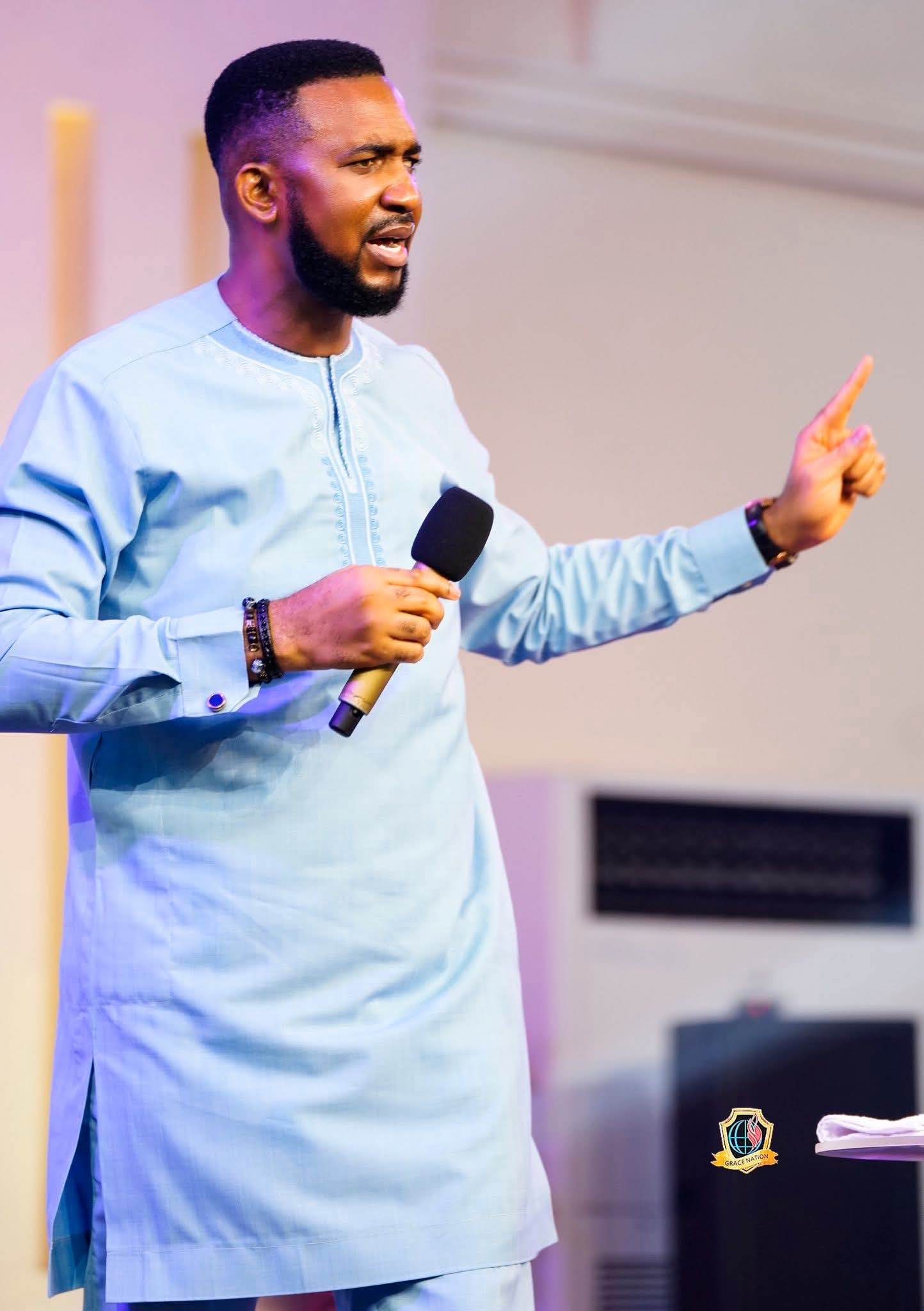
Spiritual Reality: Wicked People Are
Possessed by Wicked Spirits — Dr. Christian Okafor
…..“You don’t need to offend them before they attack you.”
…..“Your only true help comes from God.”
Demons are strategic and calculating. They detect threats quickly and position themselves to resist any power that may expose or overpower them.
According to the Generational Prophet and Senior Pastor of Grace Nation Global, Christian Okafor, spiritual intelligence operates both in light and in darkness—and believers must understand this reality.
Dr. Okafor delivered this message on Thursday, February 19, 2026, during the midweek Prophetic, Healing, Deliverance and Solutions Service (PHDS) held at the international headquarters of Grace Nation Worldwide in Ojodu Berger, Lagos, Nigeria.
The Operations of Demons
Teaching on the subject “Spiritual Reality” with the subtitle “Operations of Demons,” the Man of God explained that when demons possess individuals, their behavior changes. Such people may attack, bully, or resist those sent by God to help them, unknowingly rejecting divine assistance and prolonging their struggles.
“You don’t need to offend a demon before it attacks you,” he said. “What you carry is enough to provoke opposition. The greater your potential, the greater the battle.”
Dr. Okafor noted that many believers misinterpret battles as signs that God has abandoned them. However, he explained that some battles are permitted for growth, training, and divine glorification.
According to him, God may allow certain confrontations so that believers understand spiritual warfare and emerge stronger.
“Some battles are necessary,” he emphasized. “They push you into your turning point.”
He further stated that God does not respond to lies, blackmail, or bullying. He responds to His Word. Therefore, opposition is not proof of God’s absence, but often evidence of destiny at work.
The Weapon Against Demonic Attacks
Addressing solutions, Dr. Okafor described prayer as the strongest weapon against satanic operations.
“Prayer is the license that invites God into your battles,” he declared. “God does not intrude—He responds to invitation.”
According to the Apostle of Altars, understanding the principles and discipline of prayer enables believers to receive divine strategies for overcoming demonic resistance. Without prayer, he warned, spiritual help cannot be activated.
“You cannot receive help without God,” he concluded. “And you cannot engage God without prayer.”
Manifestations at the Service
The midweek gathering was marked by a strong move of the Spirit, with testimonies of deliverance, miracles, restoration, and solutions to various challenges presented before God. Several individuals reportedly committed their lives to Christ during the service.
celebrity radar - gossips
Kingdom Advancement: God Does Not Confirm Lies or Gossip — He Confirms His Word .” — Dr. Chris Okafor
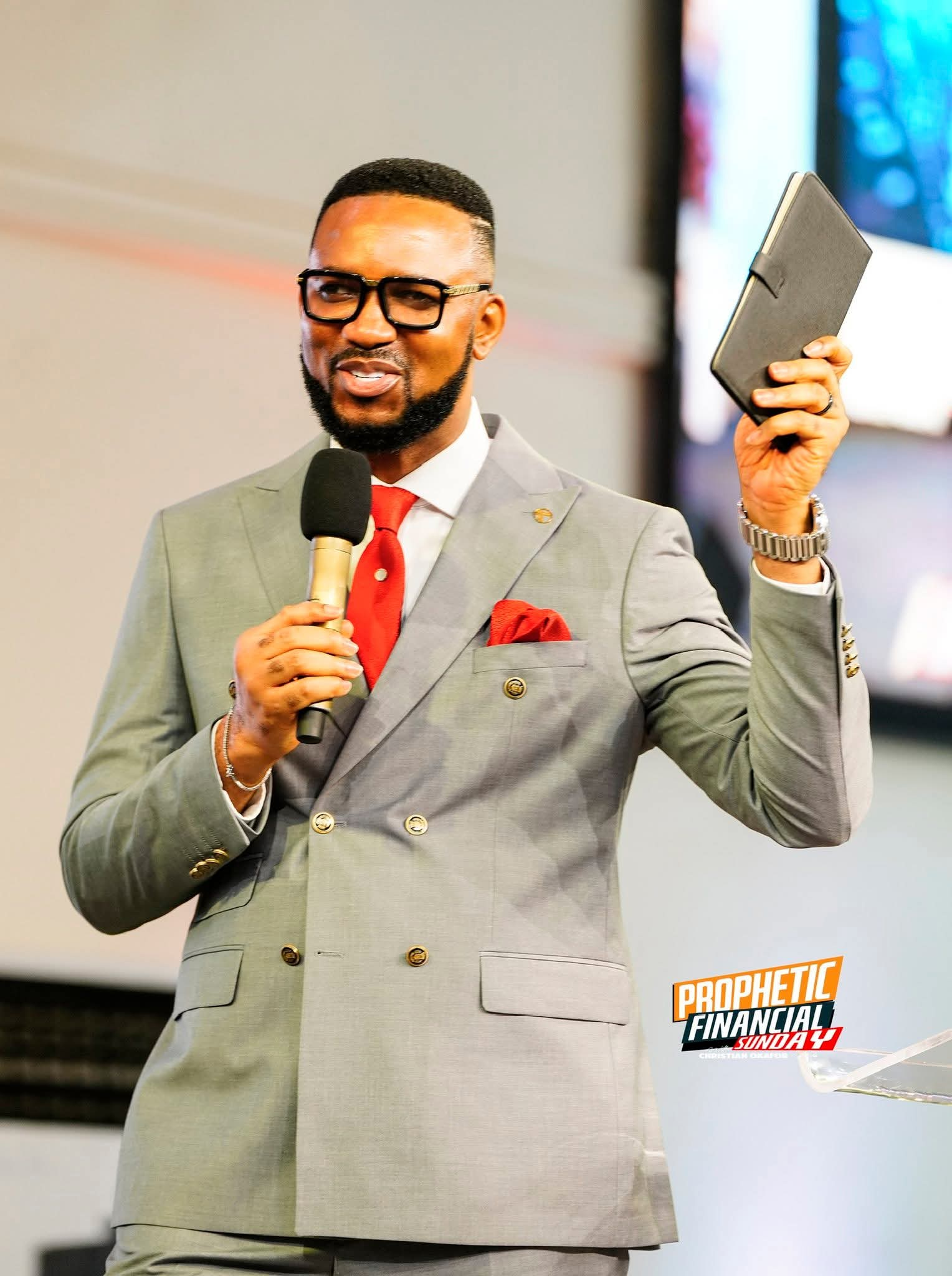
Kingdom Advancement: God Does Not Confirm Lies or Gossip—He Confirms His Word
“When Doing Business with God,
People’s Opinions Do Not Count.”
— Dr. Christian Okafor
The greatest investment any Christian can make is partnering with God. According to the Generational Prophet of God and Senior Pastor of Grace Nation Global, Christopher Okafor, when a believer commits to serving and advancing God’s kingdom, no barrier, lie, gossip, or blackmail can prevail against them.
This message was delivered during the Prophetic Financial Sunday Service held on February 15, 2026, at the international headquarters of Grace Nation Worldwide in Ojodu Berger, Lagos, Nigeria.
Doing Business with God
Teaching on the theme “Kingdom Advancement” with the subtitle “Doing Business with God,” Dr. Okafor emphasized that when a believer enters into covenant partnership with God, divine backing becomes inevitable.
“God is still in the business of covenant,” he declared. “When you make a covenant with Him, He honors the terms. When you win souls into the kingdom and remain committed to His work, He rewards you with what you could never achieve by your own strength.”
The Man of God stressed that God does not confirm lies, gossip, or negative narratives—He confirms His Word. Therefore, anyone genuinely committed to kingdom business should not be distracted by public opinion.
“No matter the blackmail or falsehood circulating around you, if you are focused on God’s assignment, those attacks will only strengthen you,” he stated.
He further noted that a believer’s understanding of God’s covenant determines their experience. “Your mentality about God’s covenant becomes your reality. When you truly know the God you serve, no devil can move you.”
Biblical Examples of Kingdom Partnership
Dr. Okafor cited several biblical figures who prospered through their partnership with God:
Abel
Abel served God with sincerity and offered his very best. His sacrifice pleased God, demonstrating that when a master is honored, he responds with favor.
David
David’s heart was fully devoted to God, and in return, God’s presence and favor rested upon him throughout his life.
Hannah
Hannah made a covenant with God, promising that if He blessed her with a child, she would dedicate him to His service. After fulfilling her vow, God rewarded her abundantly, blessing her with additional children.
Peter
Peter, a professional fisherman, surrendered his boat at Jesus’ request for kingdom work. Through that act of partnership and obedience, he experienced supernatural provision and divine elevation.
Conclusion
In closing, Dr. Okafor emphasized that one’s approach to God’s covenant determines the level of success and prosperity experienced. Commitment to kingdom advancement secures divine confirmation and supernatural results.
The Prophetic Financial Sunday Service was marked by prophetic declarations, deliverance, healings, miracles, restoration, and solutions to diverse cases presented before Elohim.
-

 celebrity radar - gossips6 months ago
celebrity radar - gossips6 months agoWhy Babangida’s Hilltop Home Became Nigeria’s Political “Mecca”
-

 society6 months ago
society6 months agoPower is a Loan, Not a Possession: The Sacred Duty of Planting People
-

 society5 months ago
society5 months agoReligion: Africa’s Oldest Weapon of Enslavement and the Forgotten Truth
-

 news6 months ago
news6 months agoTHE APPOINTMENT OF WASIU AYINDE BY THE FEDERAL GOVERNMENT AS AN AMBASSADOR SOUNDS EMBARRASSING

